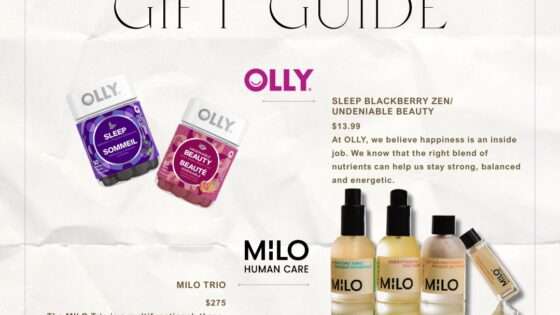on
BY SIMONE J. SMITH
“When COVID-19 hit, we stepped up to the plate right away to deliver uninterrupted services. We recognized that now, more than ever, continuity of care is critically important to the people we serve and to many more who may not have another option right now.”
Mary Alberti, CEO (Institute for Advancement in Mental Health)
When was the last time someone asked you how you were doing? No, really! When is the last time? I think that it is time that we really come to understand how important that question is to ask, and to be asked?
I had the opportunity to speak with Jack Harding, a representative for the Institute for Advancement in Mental Health, and during our dialogue, I learned about some information that made my heart hurt. Why? One of the reasons is because I know that many of us in the African-Caribbean community know someone who is suffering, or are personally struggling with mental health illnesses. These are challenges that many of us face alone, and with no reprieve.
I learned that since the pandemic hit, the Institute for Advancement in Mental Health (IAM) saw calls to its mental health support line jump up nearly 500% (most related to COVID-19), and nearly 60% of these calls were from people who were caring for family members or friends with mental health challenges.
In response to this, IAM quickly moved all of their on-site, in-person and telephone support onto digital platforms. This has allowed them to respond to the increase in volume, but that in itself has been a challenge. With us now entering the second wave of this pandemic, IAM is again noticing an increase in support needed, and even though they have served over 1,000 families and individuals this year, they are often faced with requests that outpace their current capacity. This of course has not deterred them from offering caregivers and people in need of care the help they deserve.
The institute of Advancement in Mental Health (formerly the Schizophrenia Society of Ontario) is a community mental health organization with an over 40-year history in mental health services. Their goals in 2020 have been to help more people impacted by mental illness and expand their service offerings beyond schizophrenia and psychosis. They have successfully become Canada’s first community-based mental health innovation platform that has the ability to co-create services to improve the quality of life for people dealing with mental health challenges.
“Our counsellors are hearing that many are struggling to cope each day, especially due to heightened anxiety brought on by the loss of support networks or vital activities. Many who care for others are calling in distress, feeling overburdened by the extra responsibilities and lack of respite that being shut-in during the pandemic brings,”
Kayla Nicholls, program manager, IAM
From my own personal experience, I know that when someone is living with a mental illness, it is often a friend or family member who has to act as his or her caregiver. Let’s be honest, sometimes trying to navigate the system to get the support you need can be difficult and can leave caregivers feeling emotionally or physically drained.
“Caregivers were asking for support Simone,” Jack told me. “We have heard many stories of burnout, especially during these extended lockdowns. We know that caring for those with mental illnesses is essential; it has become critical that we build and protect a caregiver’s resilience and knowledge.”
What IAM has done is create special programs specifically targeted at supporting those who selflessly support others. Some of these programs include:
• One-On-One Counselling: A direct life-line to expertise and guidance for families and others navigating the complexities of the system and developing new strategies for coping
• Support Groups: Small group classes for families and others, offering a month-long curriculum of mental health education that builds strength through a collective shared experience
• Thematic Webinars: Targeting a broad audience on timely issues related to COVID anxieties or other stressors such as festive holiday season
• Skills Development: Specialized areas for advanced caregiver training
• Expanded Services: Recognizing the changing dynamic within families experiencing shared isolation; they are planning a new support group for siblings in the New Year.
If any of these services are of interest to you, or if you know of anyone who could benefit from these services, reach out confidentially to one of IAM’s counsellors at 1-855-449-9949 or email IAM at support@iamentalhealth.ca. The line is open from 9 am to 5 pm on weekdays, with expanded hours until 7 pm, on Tuesdays and Thursdays.
As noted earlier, challenges have come with the increasing influx of calls from communities across Canada. Like many other charities, IAM’s operations have been impacted by the pandemic. They are 70% donor-funded, and IAM needs support to continue to service some of the most vulnerable communities across the country. This holiday season, IAM encourages you to help them help the untold heroes of mental healthcare and provide invaluable support and relief to caregivers in need.
Stay in the loop with exclusive news, stories, and insights—delivered straight to your inbox. No fluff, just real content that matters. Sign up today!
We, as humans are guaranteed certain things in life: stressors, taxes, bills and death are the first thoughts that pop to mind. It is not uncommon that many people find a hard time dealing with these daily life stressors, and at times will find themselves losing control over their lives. Simone Jennifer Smith’s great passion is using the gifts that have been given to her, to help educate her clients on how to live meaningful lives. The Hear to Help Team consists of powerfully motivated individuals, who like Simone, see that there is a need in this world; a need for real connection. As the founder and Director of Hear 2 Help, Simone leads a team that goes out into the community day to day, servicing families with their educational, legal and mental health needs.Her dedication shows in her Toronto Caribbean newspaper articles, and in her role as a host on the TCN TV Network.












